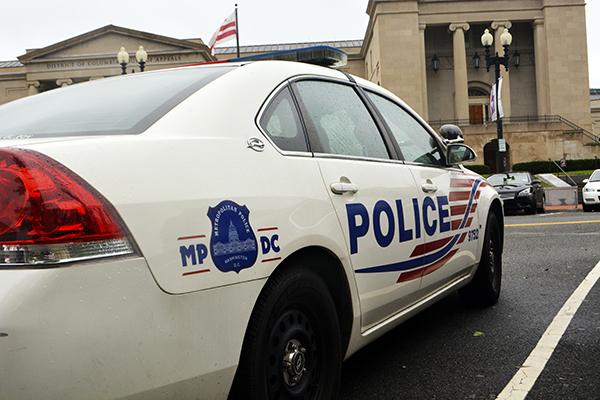Updated: Oct. 5, 2015 at 2:25 p.m.
The D.C. Department of Forensic Sciences has received 254 illegal guns since Aug. 19, a spokesperson from the department said Friday.
The seizures come after a city-wide crackdown on illegal guns on the streets, which officials have said contributes to D.C.’s rising homicide rate. There have been 205 murders in the D.C. area so far this year, with 120 occurring in D.C, putting the city not at its all-time high, but at the highest murder rate since 2010.
Of those 205 murders, nearly 70 percent were shootings. And as of last week, gun violence this year has increased by 48 percent compared to this time last year, when 81 people were killed. Included in this year’s deaths were two American University alumni.
Metropolitan Police Department Chief Cathy Lanier and Mayor Muriel Bowser held a press conference on Aug. 19 to address the crime spike, which they partly attributed to young people having access to unregistered illegal guns. Since then, the city relaunched a campaign to get the guns off the streets.
When Lanier was asked what is causing the increase in violence, Lanier said then “it is illegal firearms in the homes and hands of the wrong people, and when children have access to firearms, bad things happen.”
Bowser said this summer the city would offer $2,500 to people who give a tip leading to the confiscation of an illegal gun – more than double the standard amount. For a tip that leads to the arrest of a homicide suspect, officials will shell out $25,000, according to a release from the mayor’s office.
D.C. has some of the strictest gun laws in the country, banning machine guns and assault weapons and requiring that a person be at least 21 years old to register a gun with the city.
LaShon Beamon, the director of communications for the D.C. Department of Forensic Sciences, said in an email that the staff can conduct several different kinds of tests once they receive the guns.
Staff can check guns for fingerprints in order to identify who was in possession of it, compare cartridges or bullets to evidence found at crime scenes, restore the serial numbers on the guns in order to track its purchase and conduct test fires through the National Integrated Ballistic Information Network, which can determine if the gun has been used in a previous crime.
Bowser said in an August newsletter that since the beginning of the year, MPD had confiscated a total of 994 guns, and she asked the public for help in locating more guns.
“Illegal firearms are responsible for the vast majority of homicides in the District, as guns continue to make their way into the hands of violent criminals,” Bowser said in the newsletter. “MPD is working day and night to get these guns off the streets, where they don’t belong.”
Michael Dorn, the executive director of the campus safety organization Safe Havens International, said in an interview that two effective methods to bring down murder rates are tracking potential criminals and merging crime and traffic data to concentrate police power in the areas that are affected by both kinds of violations.
“We’ve seen dozens of examples of cities and countries, like D.C., that have been able to reduce criminal rates through the use of modern technology and effectively deploy a city’s limited resources,” Dorn said.
MPD officers began wearing body cameras in a pilot program last fall. Bowser also changed her stance on releasing the footage for the body cameras this summer, proposing a plan that would allow the public to have access to more police footage than any other U.S. city.
Thomas Lekan, a former police officer and a violent crime expert, said Bowser’s choice to confiscate illegal weapons as a major strategy to reduce violent crime in the city could be effective in preventing violent crime, but the ultimate effect would be “slight.”
“I think some of those programs take guns off the street that can hurt somebody,” Lekan said. “I do not think it takes them away from the people who are going to use them in gang violence, however.”
This post was updated to reflect the following correction:
The Hatchet incorrectly reported the D.C. Department of Forensic Sciences recovered 254 guns since August. They received 254 guns since August. We regret this error.







